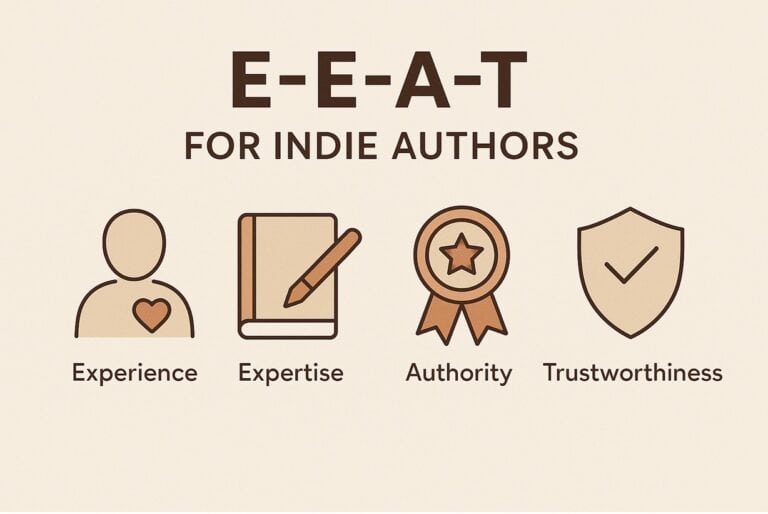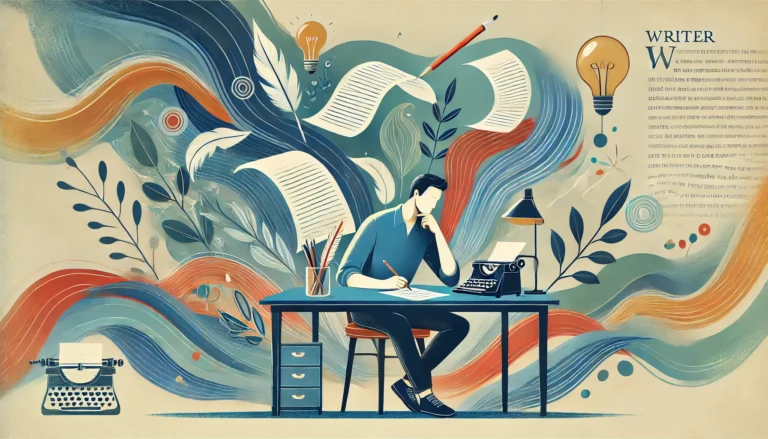How To Copyright Your Work and Stay Legally Protected
“Everyone is a copyright owner.” U.S. Copyright Office
You’ve spent months (or years) writing your book. But the moment it’s complete, another question arises. How do you protect it from being stolen or misused?
Whether you write novels, nonfiction, poetry, or scripts, copyright is your first line of defense. This writer’s guide walks you through what copyright means for new indie authors, how to officially register your work, and when taking that step makes sense.
Note: This is for educational and informational purposes. It’s not intended as a substitute for a legal or financial professional advisor. Always seek the advice of a licensed professional.)
What Is Copyright, Really?
Copyright is a legal protection automatically granted to the creator of an original work the moment it’s written down or recorded. It gives you the exclusive right to reproduce, distribute, display, perform, and license the work. You own yours from the moment of creation, but registering it strengthens your legal power. It includes:
- Books and eBooks
- Audiobooks
- Blog posts
- Scripts or screenplays
- Promotional materials
- Book cover art or illustrations (if you created them)
Do Indie Authors Need to Register Their Copyright?
Technically, no. In the U.S., you automatically own the copyright once you write the work. To qualify for full legal remedies if infringement occurs, register yours before or within 3 months of publication. Registration with the U.S. Copyright Office is essential if:
- You want to enforce your rights in court
- You want to claim damages or attorney’s fees
- You want to license your work formally
- You want to protect derivative works (adaptations, translations, etc.)
How to Register a Copyright (U.S.-Based Authors)
Registering your copyright is easier than you might think. Processing time can take several months, but your effective date is the day you submit. Here’s what to do:
- Go to copyright.gov
- Create an account and log in to the eCO (Electronic Copyright Office) system
- Choose the Literary Work category
- Fill out the form with your details (title, author name, publication info)
- Pay the fee (usually $45–$65 for online filing)
- Upload a digital copy of your manuscript
- Receive confirmation and a certificate once processed
What You Can and Can’t Copyright
You can copyright full manuscripts, original blog posts, and cover art (if you created it). You can also copyright audiobook narration (if original to you). You cannot copyright book titles, series names or generic phrases or ideas. Facts, concepts, or procedures cannot be copyrighted. For pen names, use trademarks instead. If you hire a designer, editor, or narrator, clarify in your contract who owns the rights to the work.
How Long Does Copyright Last?
In the U.S., the length varies. The long duration for authors means your work can generate income or be licensed well into the future. For individual authors, it lasts for your lifetime plus 70 years. For works made for hire or corporate works, the term lasts 95 years from publication or 120 years from creation (whichever is shorter). This long-lasting protection ensures your creative labor is honored and your business is secure.
Protecting Your Work Online
Tools like Google Alerts or services like Blasty and DMCA.com can help monitor online misuse. If you see your book pirated or copied online:
- Document the infringement (screenshots, URLs, timestamps)
- Send a DMCA takedown notice to the website host or platform
- Contact a copyright attorney for repeat or serious violations
Wrap-Up: Don’t Leave Your Words Unprotected
Copyright is the legal bedrock of your authorship. While your rights are automatic, registering your work gives you the leverage and protection you need to thrive in a digital world. By understanding and using copyright law to your advantage, you take one more step toward securing your business and honoring your creative labor.
We hope you found these writer’s guide strategies helpful and inspiring. They’re intended to provide you with the necessary tools and insights to succeed as an indie author.
For more guidance, see other writer’s guides in this series, starting with Author Financials—6 Top Tips for New Indie Authors.
If you have a draft and want to explore how AI can help you self-publish it, read, Is Your Book Ready to Self-Publish? Lastly, for help writing a non-fiction book, read Write Your First Non-Fiction eBook: a 30-Day Workbook for Getting It Done.
Writing is an ongoing adventure that involves continuous learning and improvement. You don’t have to go through this alone. We are excited to accompany you every step of the way, providing you with the support and motivation you need. Our goal is to give you the necessary knowledge and practical advice to navigate the world of writing with confidence.
Don’t wait. Start today! How can we help? To let us know, please fill out our Contact form. Happy writing!
Copyright Protection Checklist
- I understand that copyright is automatic, but registration strengthens legal protection
- I’ve created original content (manuscript, audiobook, blog, etc.)
- I’ve decided whether and when to file with the U.S. Copyright Office
- I’ve gathered my metadata and a digital copy of my work
- I’ve submitted my application through copyright.gov
- I keep copies of any contracts clarifying ownership of collaborative or commissioned work
- I monitor online platforms for potential misuse or infringement
#





